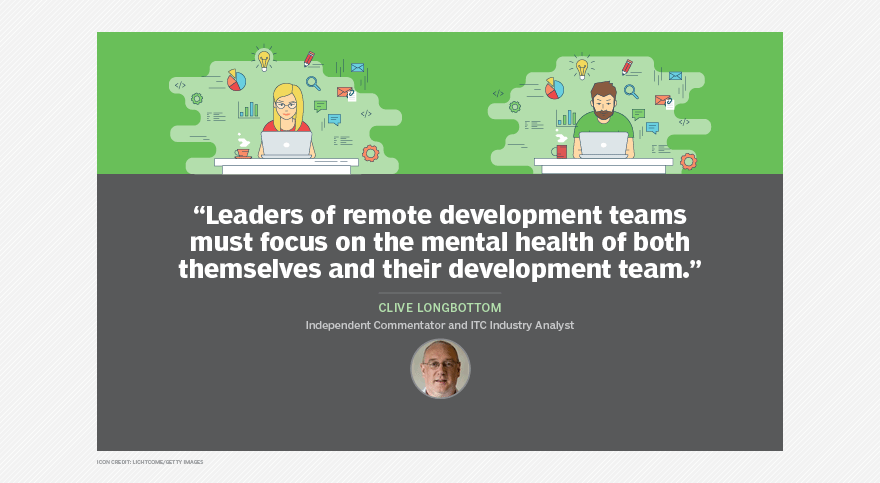5 best practices for remote development teams
When there is a crisis -- be it a pandemic, natural disaster or catastrophic human failure -- the concept of 'business as usual' goes out the window. One of the biggest reasons for this is that travel is often curtailed, which severely hurts a team's ability to get together, work collaboratively and share ideas. But this doesn't mean the end of collaborative work, such as one finds in development shops that roll out code to operations environments.
Most DevOps processes and tools are already built with decentralized teams in mind. The creators of these systems and tools have worked within disparate teams themselves, recognize the problems and wrote the systems to support remote developers as much as possible.
But in addition to DevOps tools, collaboration systems are also critical. Video services, such as Skype and Zoom, allow groups to still get together and dynamically exchange thoughts and ideas. Email, messaging and workflow systems all play their own part as well, but everything must be used sensibly.
When team members are spread out as they are now, they need to follow some fundamental advice:
- Avoid one-to-one messaging that can cut certain team members out of loops.
- Ensure everyone can speak during video or audio conferencing.
- Document and store ideas and conclusions in a suitable repository after any session.
Leaders of remote development teams must also focus on the mental health of both themselves and their development team. Make sure team members have adequate amounts of time to do some home-based exercise, play a game, binge watch a TV series, check on friends and family members, or any other activities that get them away from the work desk.
This also means that team managers should work on deliverables, since the 40-hour week is no longer a valid term of measurement for productivity. Check on team members regularly. If they are not managing to meet targets, ask why. Is it because they are ill? Are they dealing with a sick family member? Are they suffering from cabin fever? If they are having trouble, it's critical to see what you can do to get them the help they need.
There is no reason why DevOps processes should grind to a halt during a crisis. But it does mean that team leaders need to focus on maintaining sensible work practices, take a caring approach to dealing with employees, and think carefully about the demands they place on individuals.
Clive Longbottom is an independent commentator and ITC industry analyst.






